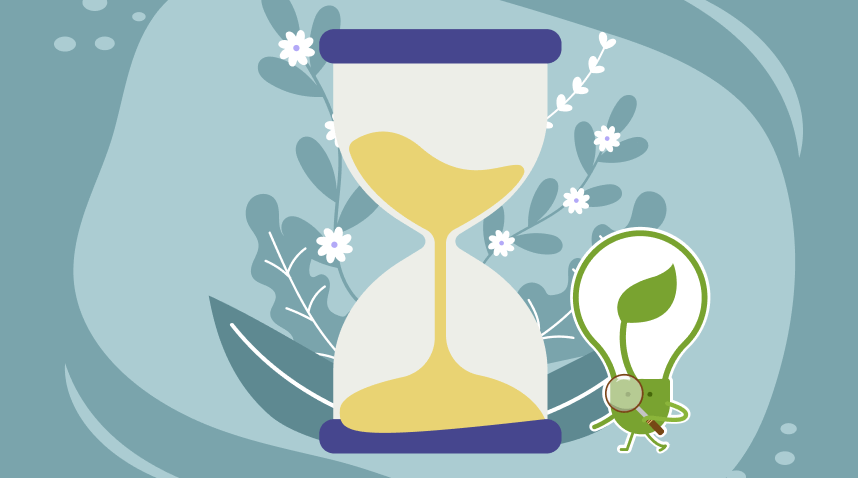TLDR: Ever wondered why incorporating Buddhism into your daily routine feels like an uphill task? Could it be our perpetual race against time or the constant urgency we feel in today’s fast-paced world?
During one of my mentoring sessions, I raised an intriguing point about the common question that arises during Q&A sessions in almost every Dhamma talk: how to integrate Dhamma into daily life or put the Buddha’s teachings into action.
It appears that while many grasp the concept of Dhamma, they struggle to implement it effectively. It’s akin to passing the theoretical part of a driving test but faltering in the practical application.
The unfortunate reality is that no matter how well one memorises the Buddha’s teachings, they hold little value if not put into action. It’s like having knowledge of driving but being unable to operate the “car.”
The biggest mistake is assuming you have ample time when, in reality, time is limited.
“Buddha asked a group of sramana (monks), “What is the time of a man’s life (or in what does a man’s life consist)?” One replied, “(in) a few days (only).” Buddha said, “Son, you are not yet able to attain supreme wisdom.” Again he asked a single monk the same question, who answered, “The time of a meal (or of taking a meal).” Buddha answered, “Son, you are not yet capable of attaining supreme reason.” Again he asked the same question of another monk, who replied, “Man’s life is but a breath, a sigh!” Buddha answered, “Well said, son! you are able to speak of attaining supreme wisdom.”
Section 38, from An Analysis of The Sutra of 42 Sections
Many individuals often express the response of not having time, or believing that they will have time for Dhamma later.
The Buddha dedicated 6 years to seeking enlightenment after leaving the palace at 29. In the context of an average human lifespan of 60 years, these 6 years represent approximately one-sixth of our lives.
Surprisingly, despite representing less than half of our lifespan, we frequently fail to dedicate sufficient time to understand or apply these invaluable teachings.

One needs to understand that Dhamma reveals the fundamental truth about how the world operates.
I understand your thoughts. The Buddha’s journey to enlightenment wasn’t accomplished in one lifetime; it took many lifetimes of self-improvement. Since the Buddha believed that everyone has the potential for enlightenment, why not start your path with a deep commitment?
Time is invaluable and cannot be possessed, only spent. It cannot be saved but only wisely used. Once time is squandered, it is lost forever.
Ever pondered the perks of diving into the Dhamma teachings sooner rather than later?
The Dhamma contains treasures of wisdom and profound inner peace, and at times I ponder how my life could have evolved if I encountered these teachings sooner.
I imagined I could have navigated through the trials and tribulations of my past with greater equanimity and understanding.
The Dhamma offers wisdom on embracing change, accepting imperfections, and maintaining tranquillity in the face of adversity, which might have eased some of the pain and confusion in darker times
However, I appreciate the beauty of discovering the Dhamma as I did. It was like a lighthouse emerging from a foggy night, appearing at a time when I was prepared and receptive to embrace it. Some might say that the challenges and encounters before that instant laid the groundwork for a deeper appreciation and understanding of the teachings.

Upon reflection, I am filled with deep gratitude for the path I’ve travelled – both before and after discovering the Dhamma. I am thankful for every stumble in the dark as it has guided me to the enlightening path I’m on now. In this way, Instead of dwelling on the ‘what ifs’ of discovering Dhamma sooner, I focus on cherishing the quiet miracle of discovering it at all.
How can I incorporate the Buddha’s teachings into my daily life?
“Mendicants, when these four times are rightly developed and progressed, they gradually lead to the ending of defilements. What four? A time for listening to the teaching, a time for discussing the teaching, a time for serenity, and a time for discernment.
It’s like when it rains heavily on a mountaintop, and the water flows downhill to fill the hollows, crevices, and creeks. As they become full, they fill up the pools. The pools fill up the lakes, the lakes fill up the streams, and the streams fill up the rivers. And as the rivers become full, they fill up the ocean.
In the same way, when these four times are rightly developed and progressed, they gradually lead to the ending of defilements.”
One can start by dedicating extra time to comprehend and delve deeper into the teachings of Dhamma.
I find it helpful when taking time to reflect on my current situation and identifying which aspect of the Dhamma can help resolve my current dilemma.
Begin by contemplating how these experiences align with the essence of the Dhamma. After reflecting, put these insights to the test by applying them to see if they are effective.
Throughout the centuries, Buddhism has offered spiritual and philosophical guidance to millions. By delving into the straightforward yet profound teachings of the Buddha, we can reap numerous benefits by incorporating them into our daily lives.
The core tenets of Buddhism emphasize cultivating mindfulness, compassion, understanding, and wisdom – qualities that significantly enhance our overall well-being.
Embracing these teachings enables individuals to achieve inner peace and harmony leading to a positive impact on their mindset, behaviour, decisions, and relationships.
A practical way to incorporate the Dhamma into our everyday lives is by embracing mindful living or mindfulness. This practice entails being fully present in each moment without judgment. Cultivating mindfulness aids in reducing stress, anxiety, and negative emotions while promoting concentration, empathy, and tranquillity.
The Noble Eightfold Path, another core teaching of the Buddha, serves as a moral compass guiding various aspects of our lives, ranging from speech to livelihood. Embracing these principles fosters ethical conduct, inspiring us to lead more compassionate, truthful, and thoughtful lives.
To gradually infuse Buddhism into your daily routine, consider these steps:
- Embrace Mindfulness: Dedicate a few minutes each day practising mindfulness meditation to break free from the routine. This practice allows you to connect with self-awareness by observing thoughts and emotions objectively.
- Cultivate Compassion: Demonstrate kindness and empathy by engaging in simple acts such as attentive listening, providing understanding, or participating in volunteering activities
- Recognising Impermanence: Embracing impermanence helps handle difficulties, losses, and changes with resilience. Reflecting on impermanence during tough times fosters patience and fortitude.
- Live Ethically: Apply the moral guidelines in the Noble Eightfold Path in decision-making to uphold integrity and foster positive relationships that enhance both personal and professional interactions.

Achieving and sustaining results requires regular practice until it becomes an ingrained habit
Consistent practice is key to sustaining a Dhamma-inspired lifestyle. Engaging in regular mindfulness meditation, continuous learning about the Buddha’s teachings, being part of a supportive community, and maintaining a receptive mindset for learning can all contribute to fostering a long-lasting Dhamma practice.
In essence, integrating Buddhism into our lives does not require a religious conversion. Rather, it represents a gradual shift toward a more mindful, compassionate, and harmonious way of living.
Whether seeking spiritual growth or a more fulfilling life, embracing the Dhamma can lead to a profound transformation. Don’t you just love to drive the car, travelling towards a place where tranquillity and freedom await? 🙂
Wise steps:
- Choose a serene and calming location where you can peacefully reflect upon your Dharma readings or discourses, fostering a deeper comprehension and connection to what you’ve learned.
- Stick to a consistent mindfulness meditation routine to reinforce your Dhamma learning and inner peace.
- Continuously explore and learn about the Buddha’s teachings to deepen your understanding and cope with life’s challenges.
- Connect with a supportive community that promotes sharing, learning, and personal growth while living a Dhamma-inspired lifestyle.


